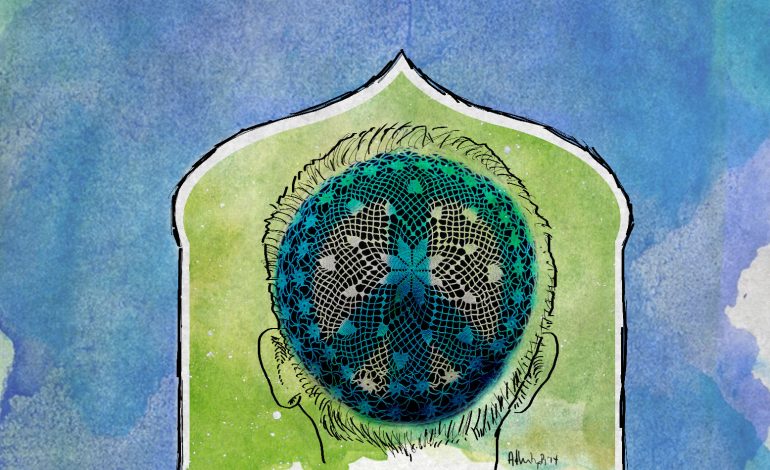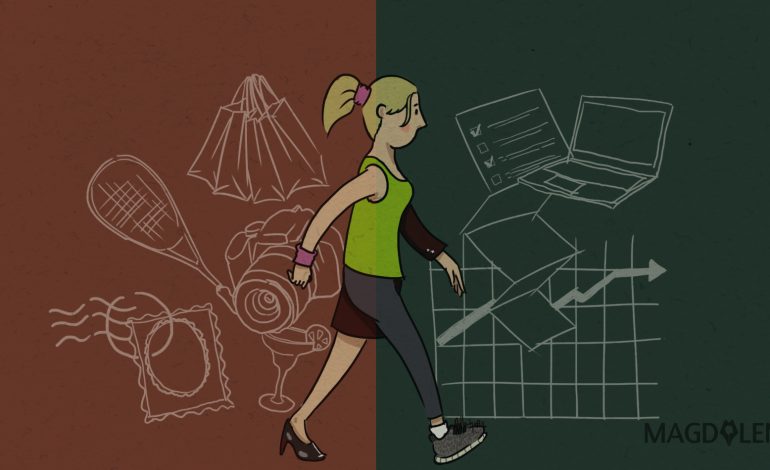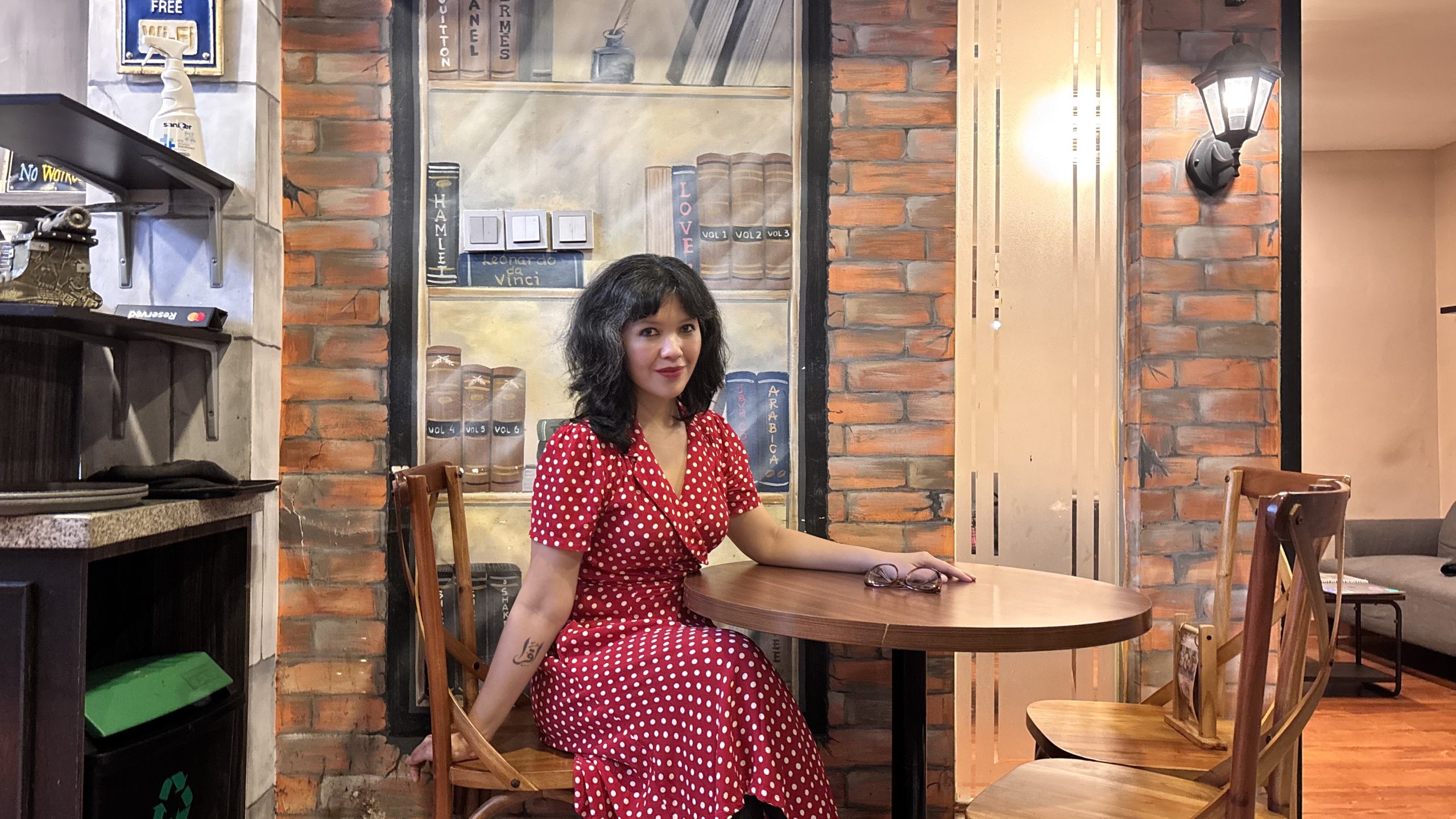In NTB: Youth Group Celebrates Diversity, Fights Radicalism

East Lombok, West Nusa Tenggara – Pahrurozzi, a 24-year-old khatib (a person who delivers the sermon) from Labuhan Lombok village in East Lombok, was born and raised in a conservative Muslim family. From a young age he had been taught to dislike people who were not Muslim.
“Since I was a kid, I had been indoctrinated by my family that people who were not Muslim were bad and any teaching other than the teaching of Islam was not right,” he said in a conversation with Magdalene and a few other media organizations during a visit to West Nusa Tenggara (NTB).
The trip was organized by non-profit development organization Oxfam Indonesia as part of its project “I am One, I am Many.” Partnering with women’s legal aid LBH APIK in NTB and Circle of Imagine Society (CIS) Timor, the project focuses on peace and diversity, combating discrimination and building youth leadership. When I met Ozi (photo, left), his nickname, he seemed very self-conscious about his look, discreetly asking his friends several times if he looked fine or if he looked weird. He was wearing ordinary clothes, a blue shirt, black jeans and blue sneakers.
When I met Ozi (photo, left), his nickname, he seemed very self-conscious about his look, discreetly asking his friends several times if he looked fine or if he looked weird. He was wearing ordinary clothes, a blue shirt, black jeans and blue sneakers.
I found out the reason behind his self-consciousness during the interview, when he said that he used to be dressed exclusively in Islamic garb – a gamis tunic, sarong, and kopiah – almost all his life. Only in the past two months had he started to change his outfits.
“I still feel uncomfortable wearing these clothes,” he said.
Ozi went to Institut Agama Islam Hamzanwadi Nadhatul Wathan (IAIH NW) in East Lombok for four years where he earned a Qur’an Hadith degree. He then started to deliver sermons during Friday prayers at one of the mosques at his village.
While a khatib, he never shied away from controversial issues. Once he preached about the blasphemy case that resulted in the jailing of former Jakarta Governor Basuki Tjahaja Purnama (Ahok), which invited a lot of people to come to him to ask about the case afterwards.
Masri Asril, 24, from Ubung village, Central Lombok, shared a similar story. Growing up in a poor family, he had little access to information as a child and teenager.
“I had my first phone when I attended college,” said Masri.

It was also in university that he first became acquainted with a fundamentalist Muslim campus organization.
“Since I had no access to information when I was young, I had always been very curious. When I found this organization, I felt like my curiosity was finally sated,” he said.
“Well, to be honest, that and a girl had just broken my heart,” he said flushed. “That was also one of the reasons why I joined the organization. It was kind of like an escape for me,” he added.

Over the course of two years in the campus organization, which he claimed to have had foreign ties, his lifestyle changed 180 degrees. There were strict rules, including not having a direct encounter with women.
He was not even allowed to be near a woman: “I’d say: please stop there, don’t come near me.” Nor was he allowed to shake hands with his female relatives, such as his aunt or cousin, when he visited their house for Halal bi Halal (a family gathering after Eid Mubarak), or any other occasions.
“Once, my mom asked me to give my aunt a ride back to her home when she visited my house. I instantly refused it. In this organization, I was taught to not interact with women who are not my muhrim, my mom and sister,” added Masri (photo, right).
Watching TV was off limit, so was wearing jeans. He was only allowed to wear pants that stop just above his ankles. He could not interact with people of different religions, and he was required to scold unmarried couples whenever he encountered one. Basically he was living a life that was shut out from the outside world.
“There were so many restrictions. The moment I joined this organization, I became completely exclusive and limited,” said Masri.
The great transformation
Today Ozi and Masri have become “agents of peace” along with 28 other young men and women in NTB grouped in the Aliansi Kerukunan Pemuda Lintas Agama (AKAPELA) with a mission to spread peace and diversity through arts throughout the province. Supported by LBH Apik NTB and Oxfam Indonesia, AKAPELA also promotes other important issues such as gender equality, fighting radicalism ad ending child marriage. The program also exists in the neighboring East Nusa Tenggara province (NTT).
“This is the second year of this project,” said Marcellina Kristi Praptiwi, Oxfam Indonesia’s Project manager. “First, we did an assessment. We mapped and chose which areas have a high level of diversity, not homogeneous areas. And we identified three areas with many discrimination cases: Mataram, East Lombok, and Central Lombok.”
After the assessment, Oxfam Indonesia and LBH Apik NTB conducted a pilot project.
“Based on the baseline survey of 300 respondents in NTB and NTT, we discovered that the most common forms of discrimination are the ban on worship activities or the construction of a house of worship at 39.1 percent, and the exclusion of minority groups in the community at 31.6 percent,” she explained. “And the most potential conflicts are among young people at 36.2 percent.”
Surya Jaya, the Diversity Program Coordinator of LBH Apik NTB, said that since the start of the project in 2017, they have approached 500 young people in in villages, schools and various youth forums and communities in the province to invite them to attend “big discussions.” The themes of the discussions range from gender, discrimination, radicalism, violence against women, to diversity.
“That is why we involve young people. Because we believe that young people have a great potential in a positive way. And they can spread it to their friends and community,” said Surya.
After the discussion, Surya chose 30 youths. From each of the five “clusters” of villages, six youths who met the criteria and/or were recommended by their villages would be selected to join AKAPELA and to take part in all its activities and capacity building. They were trained to increase their capacity so they can be facilitators to spread diversity values through discussion.
Ozi had never thought that he would turn from a religious fundamentalist into a pluralist who spreads information on gender equality just by attending some of the discussions. When asked how the drastic turn-around came about, he credited Surya for teaching him about character and identity.
“My turning point was when Mas Surya explained about the difference between character and identity,” said Ozi.
“He told me that identity is what your religion or belief is: Islam, Christianity, Hinduism, and so on. So when we talk about religion, we have to remember that every religion teaches good things and has one meeting point, which is to be a good person,” he said.
“But character is different. Character attaches to your personality, and each person has a different character. So when it comes to religion, it is not the religion (identity) that is violent. It’s the person’s character who is violent,” he explained.

Members of AKAPELA.
Looking back at the things he preached – like the Ahok case – he realized he was part of the problems.
“I realized that I was the first one around here who spread the information on the Ahok case, the one who fueled the hatred,” recalled Ozi.
Angered by his transformation, his friends would protest him or even insult him, but Ozi would respond by quoting the Quran verse: “Allah jameel wahibbul jameel.”
“It means God is beautiful and God loves beauty,” he said.
Today, Ozi preaches about gender equality from the pulpit. He wants to be a “gender khatib”, he said. Ozi has begun to examine some hadiths (the collected sayings, actions and habits of the Prophet Muhammad) related to women. For example, the An-nisa’ chapter in Quran contains verses specifically about women.
“There’s a hadith that says Almar’atu ‘imadul bilad, which means women is the nation’s pillar. According to my interpretation, the leader doesn’t necessarily have to be men, a woman can also be a leader. As long as they meet the characteristics of a leader, which according to God’s command, has to be able to do good, fair, and can teach goodness to the community,” Ozi explained.
Unlike Ozi, Masri had quit the extremist organization before he joined AKAPELA because his parents were worried about his extreme behavior and his wellbeing.
“I finally left that organization, and I couldn’t be more grateful,” said Masri, who is currently a student in University of Mataram, majoring in English Literature.
In mid-2016, he was invited by Baiq Nila Fatimasari, who had contributed to the pilot project, and was also a member of AKAPELA, to attend the big discussion.
“Masri was recommended by his village. So I came down to his place in Ubung, and I saw that he actually did something to the community,” said Nila. Indeed, with his childhood friend Widiya Suci, Masri had started the initiative Insan for Humanity (INSANITY), by teaching English to elementary school kids. Both of them are now members of AKAPELA.
Kristi, Oxfam’s Indonesia Project Manager, expressed her hopes that the project can encourage more young people to become aware of many aspects of society and to advocate for and celebrate diversity.
“Young people plays an important role to make a difference,” she added.
*You can watch AKAPELA’s video campaign to stop violence against women here.
Find out the role of youths in ending violence against women and follow @bunnnicula on Twitter.






















